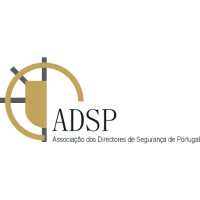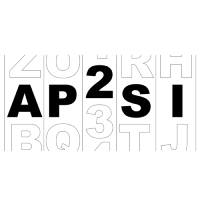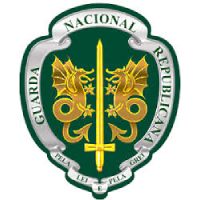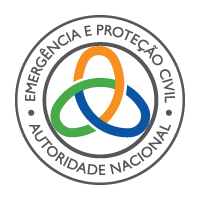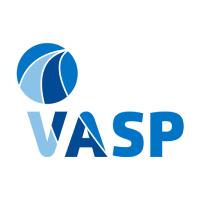Security Management and Direction
Scientific Area
The course, recognized by the PSP (authorization no. 122), mandatory for the exercise of the profession of security director (Law no. 34/2013, of May 16, amended by Law no. 46/2019, of July 8) and structured under the terms of Ordinance no. 148/2014, of July 18, amended by Ordinance no. 304/2021, of December 17, ensures solid training in the various aspects of private security, allowing participants to acquire a comprehensive vision of all the techniques, processes and procedures developed by the same in the most diverse areas of activity in which it operates.
To enrich the course and consequently reinforce the skills of its students, it offers an internship (optional) that represents the practical component in a real work context.
It also has some of the best professionals from the security forces and services, as well as some of the most experienced security directors in Portugal who operate in the most varied areas of activity, totaling more than forty teachers who teach the course. It also ensures the necessary subjects for the solid training of security liaison officers and infrastructure contact elements of critical infrastructure operators, as provided for in articles 17 and 18 of Decree-Law no. 20/2022, of January 28, which approves the procedures for identifying, designating, protecting and increasing the resilience of national and European critical infrastructures. To this end, the course dedicates a module to the subject.
With the exception of visits, for the convenience and safety of students, classes are taught in person, but remotely.
Law 34/2013, of May 16, amended by Law 46/2019, of July 8, introduced the obligation that, in addition to entities that provide security services or organize self-protection services, those that own large commercial spaces and banking institutions must also have security managers.
Recently, Law 113/2019, of September 11, determined that security managers in sports venues with a capacity of 15,000 spectators or more, or where professional competitions are held or where the risk is considered high, must have training as a security director, as determined by the Laws, for those responsible for security provided for therein.
Decree-Law 8/2019, of January 15, which regulates the Law on cannabis for medicinal purposes, and Law 35/2019, of May 24, which determines the security measures for establishments with dance spaces, also establish the attendance with approval of the security director course for those responsible for security.
These regulations reveal the undeniable importance that the private security sector has assumed in Portugal, along with a greater demand for the quality of services provided and greater accountability of its actors, to which the course provides the appropriate response.
The multiple functions and competences assigned to the director and other security managers, established in the aforementioned laws, determine the requirement to attend this course, covered by Executive Order 148/2014, of July 18, amended by Executive Order No. 304/2021, of December 17, but which goes far beyond the subjects and duration to which it is required. The course also qualifies for the role of trainer in courses for private security surveillance personnel.
To this end, the general objectives of the course are:
- Know or update the different tasks of security management and direction, at their different levels and areas of activity;
- Understand or deepen your knowledge of managing security resources to enable maximum potential.
All those who work or intend to work in the area of Private Security, or related to it, with particular relevance to the performance of the functions of security director, security liaison officer and/or contact person for the infrastructure of critical infrastructure operators, security manager for self-protection services, financial institutions, entities managing large commercial areas, cannabis farms for medicinal purposes, establishments with dance spaces, as well as security managers of sports venues or private security trainers.
Minimum academic qualifications: 12th grade or equivalent – Ordinance No. 304/2021, of December 17
MODULES
1 – Introduction to private security – 31h – 6 ECTS
2 – Legal framework for private security – 12h – 2 ECTS
3 – Physical and electronic security – 12h – 1 ECTS
4 – Critical infrastructures – protection and increased resilience – simulated disaster response exercise – 7pm – 3 ECTS
5 – People’s safety – 23h – 3 ECTS
6 – Information Security and Cybersecurity – 12h – 1 ECTS
7 – Fire prevention and protection – 13h – 2 ECTS
8 – Planning and management of private security – 94h – 12 ECTS
9 – Palestras e visitas – 52h (1)
10 – Prática em contexto real de trabalho (facultativo) – 140h (2) – 5 ECTS
(1) It includes three hours of training, provided and certified by the Bank of Portugal, on methods for verifying the authenticity of euro notes and combating counterfeiting, called “Knowledge of the Euro Note”.
(2) The internship takes place at the end of the course
Álvaro Santos – Security Consultant at the Lisbon Central Hospital Center
Eng. António Carvalho – Former Chief Coordinator of the PJ
Eng. António Dias – former Director of Security at GALP’s Sines Terminal
Eng. António Neves Valente – Director of Security for the Lisbon Metro
Commander António Varela – Former manager at the Maritime Authority
Dr. Armando Martinho – Former Groundforce Security Director
Armando Pereira – International Consultant and Trainer in Physical Protection, Safety and Emergencies in Mining and Industrial Risk Complexes
Major Artur Cerejo – CP Security Director
Eng.º Aurélio Carvalho – Manager, Security & Safety – Sonae Sierra
Eng.º Baltazar Rodrigues – Former Coordinator of the PJ
Intendente Bruno Torres – PSP Private Security Department
Dra. Carina Ferreira – Member of the ADSP
Dr. Fernando Martins – CTT Security Director
Colonel Fernando Montenegro – Security Consultant/Brazilian Army Special Forces/Former Commander of the RJ Pacification Force
Dr. Francisco Marques – Former Senior Coordinator of the Presidency of the Council of Ministers; Master in International Relations. Lieutenant Colonel Francisco Oliveira – ADSP Member and Security Director
Colonel Francisco Rodrigues – Former Commander of the GNR Special Operations Unit
Commissioner Hélder Freixedelo – PSP Private Security Department
Dr. Isabel Pais – Coordinator of the Critical Infrastructure Protection Area ANPC/EU Contact Point
Colonel Jara Franco – President of the General Assembly of the Association of Security Directors, Postgraduate in Communication Consulting
João Almeida – Security Director – RTP
Superintendent João Ribeiro – Former Director of the PSP Private Security Department
Master Jorge Batalha – DPO – PD Consultant and Trainer
Dr. Jorge Mimoso – Former Chief Inspector of ASAE
Eng.º Jorge Pinto – Security Consultant/President of the Association for the Promotion of Information Security AP2SI
Eng.º Jorge Pinto – Security Consultant/President of the Association for the Promotion of Information Security AP2SI
José Meneses – Security Director at Makro
Doctor José Martins – Senior Consultant in Information Security
Eng.º José Oliveira – Vice-President of the National Emergency and Civil Protection Authority (ANEPC)
Eng.ª Laura Silva – Commercial Director Securitas
Eng. Leonel Salvado – Director of Security Service NAVPortugal
Eng. Lino Santos – Coordinator of the National Cybersecurity Center
Luís Oliveira Martins – Chief Inspector PJ (ex-SEF)
Dr. Manuel Ribeiro – Former Director of the Municipal Civil Protection Service of CML
Dr. Marcelo Monteiro – Security Senior Manager Pestana Hotel Group
Marco Santos – EPAL Safety Manager
Eng.ª Maria José Reis – Security Consultant for the Ministry of Culture
Professor Doctor Eng.º Mário Lopes – Professor at Instituto Superior Técnico/Specialist in seismic engineering
Dr. Mário Silva – Former Director of Security at CTT
Eng. Miguel Oliveira – REN Operation and Maintenance
Dr. Miguel Ramires – IP and Security Consultant
Coronel Mota Pereira – Chefe do Departamento Credenciação do Gabinete Nacional de Colonel Mota Pereira – Head of the Accreditation Department of the National Security Office
Eng. Pedro Viana – Director of Security at the Bank of Portugal
Tenente-Coronel Doutor Pinto da Silva – Coordinator of the Masters in Security, Defense and Conflict Resolution at ISCIA
Dr. Rodolfo Pessoa – Galp Management Systems Manager/Auditor
Eng. Rodrigues Marques – Commander of the Navy
Subintendent Rui Fonte – Head of the Operational Area of the Lisbon Municipal Police
Major Rui Pereira – Former Security Director of Sport Lisboa e Benfica and Sporting Clube de Portugal
Colonel Rui Pimenta – Security Director and Trainer
Major Silvestre Machado – National Security Director of the AUCHAN Group
Simões Lopes – National Security Director at PROSEGUR
Dr. Tomás Ciríaco – Director of Security at the Lisbon Casino
PSP Private Security Department
“Regarding the 1st Edition of the Course, I am pleased to say that I am very proud to have participated as a trainee in this course. From the very beginning, I felt that its syllabus was perfectly suited to the demands of the role, as was the quality of its teachers, to whom I must thank for all the knowledge they shared during the course. The demands and rigor throughout the training are the conditions for which I strongly recommend choosing this prestigious institution to attend this course, to all interested parties and to those who have a special interest in the area of security. By obtaining my certification, I have significantly improved my professional situation, since I have become the Security Director of Redguardman Segurança Privada Lda., a company where I previously worked as Operations Director. To the UAL School of Management and Business, my deepest thanks.”
Luís Miguel Ferreira da Silva
“The course was very good and complete, since according to the available workload, it covered and addressed the safety and security aspects, which in terms of security complement each other from the perspective of comprehensive security. The topics covered were taught by professors with theoretical and practical knowledge of the subjects, which is always worth highlighting. It was extremely important for my professional development, allowing me to acquire skills that are extremely important for professional development. For this reason, I would like to praise and thank the UAL School of Management and Business and the Portuguese Association of Security Directors for initiating this course, allowing access to this area of knowledge.”
Mário Pinto – Director of the Security Department of a multinational distribution company
“For me, this postgraduate course was an investment in the quality of teaching. All the topics were covered in a very competent and serious manner, without any frivolity or complacency. Therefore, I can now say that the job opportunities are not a coincidence, but rather the result of the recognition of the skills acquired, which have greatly enriched my CV.”
António Baptista
“When I signed up for the course, it was with the main objective of obtaining professional certification. I was pleasantly surprised because this training turned out to be much more intense, comprehensive and useful than I could have imagined. I compare it with the similar training in Spain, which a colleague of mine from the bank attended and which I visited, and I consider this one to be more appropriate and complete for our reality. The added value of the course is, in addition to the acquisition of knowledge, a large dose of “coaching” on ethics and conduct of the security director, an insight into the different realities of private security and contact with trainers and trainees from many different backgrounds. I believe that some aspects can still be improved just to increase the level of quality, which in my case exceeded expectations.”
Pedro Viana – Security Director at the Bank of Portugal
I would like to thank the coordinator and the entire excellent team of trainers at UAL for all the knowledge and teachings they have provided.
They will certainly be an asset to my future career in the private security sector and in training.
I am grateful to everyone and for everything.
Paulo Alberto
I would like to take this opportunity to thank you once again for your availability and commitment, coordinator and teachers.
I am certain that there is no other training offer as complete as this one on the market, because, in addition to the academic knowledge of the teachers being unquestionable, they have the know-how of the professional experience of each of them, and that is unbeatable.
I wish you all the best, thank you and see you soon.
Paulo Patinha
Next Issue: 19 September 2025
Teaching regime:
Duration: 268 hours
ECTS: 30
Schedule: Fridays from 6:30pm to 10:30pm Saturdays from 9am to 1pm and from 2pm to 6pm
- Application: €150
- Registration: €100
- School insurance: €20
- Certificate of qualifications: €75
- Tuition fee: €1,450*
*Payment in 4 monthly instalments or upfront payment with a 3.5% discount
*AUTÓNOMA students and former students and ADSP members benefit from a 10% discount on the tuition fee.
Original or certified copy of the Qualification Certificate (a)
Colour photograph
Curriculum vitae.
(a) Qualifications obtained at the Autonomous University do not require authentication. In the case of qualifications obtained abroad, in addition to the authentication of the copy(ies) described above, authentication by the Portuguese Embassy or Consulate in the country of origin of the qualification or by the Hague Convention Apostille is required. If the documents are not in Portuguese, they will need to be translated by a translator recognised by the Portuguese diplomatic representation.
The application will only be validated upon payment of the application and submission (within a maximum period of 30 days) of all the requested documentation.
Failure to submit the aforementioned documents will invalidate the registration and prevent students from attending the course.


